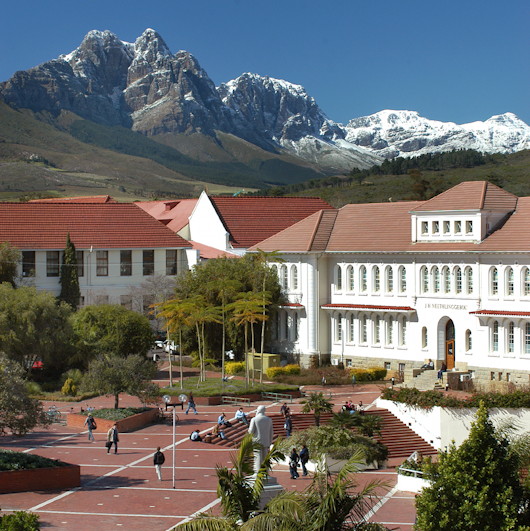
About Andrew Cusack
 Writer, web designer, etc.; born in New York; educated in Argentina, Scotland, and South Africa; now based in London.
Writer, web designer, etc.; born in New York; educated in Argentina, Scotland, and South Africa; now based in London. read more
News
Blogs
Reviews & Periodicals
Arts & Design
World
France
Mitteleuropa
Knickerbockers
Argentina
The Levant
Africa
Cape of Good Hope
Netherlands
Scandinavia
Québec
India
Muscovy
Germany
Academica

Open-minded Stellenbosch
Paul Moorcraft is a Cardiff-born journalist and academic who spent many years in southern Africa, lecturing, researching, and working. I stumbled across this passage about Stellenbosch from his 2011 book Inside the Danger Zones: Travels to Arresting Places and found it interesting (though not surprising):
I found many of my all-white students at the University of Cape Town tediously dogmatic in their supposed progressiveness. I also lectured at the Afrikaans-language university of ‘Maties’ at Stellenbosch, established in 1918 [sic, f. 1866; accorded university status in 1918] as the Afrikaner Oxbridge, where I found the students much more open-minded. Simon van der Stel, a stiff Dutch bureaucrat, founded a frontier town on the banks of the Eerste River in 1679. Van der Stel loved oaks, and the graceful boulevards he planted still adorned picturesque Stellenbosch. I spent as much time as possible in the area because of the architecture. The Cape Dutch style contains elements from Dutch architecture but is also influenced by colonial Indonesian traditions and the local environment. The most characteristic feature is the graceful gabled section built around the front door, which is flanked by symmetrical wings, thatched and whitewashed, extending on either side.
I was supposed to be using my visiting lectureship to finish my doctoral research, so I became friendly with Retha, a librarian at Maties. She was a fund of knowledge on Afrikaner culture and offered herself as an intellectual guide. My scholarly investigations soon degenerated into a three-month tour of the local wine farms, for which I am eternally grateful. We drove through the old, beautiful vineyards of the valleys around Paarl, Franschoek, and Tulbagh; then returned to eat in splendid eighteenth-century farmhouses converted to hotels.
Search
Instagram: @andcusack
Click here for my Instagram photos.Most Recent Posts
- Teutonic Takeover March 10, 2025
- Katalin Bánffy-Jelen, R.I.P. March 3, 2025
- Substack Cusackiensis March 3, 2025
- In the Courts of the Lord February 13, 2025
- American Exuberant February 10, 2025
Most Recent Comments
Book Wishlist
Monthly Archives
Categories



I hope that by “much more open-minded” he means “willing to re-impose European order when the time is ripe”.
And of what precise period is he writing?
This would’ve been the 1980s.
Rather amusingly the Higher Education Minister, Blade Nzimande MP, said yesterday that teaching via African languages (Zulu, Xhosa, etc.) was “better under apartheid than today”.